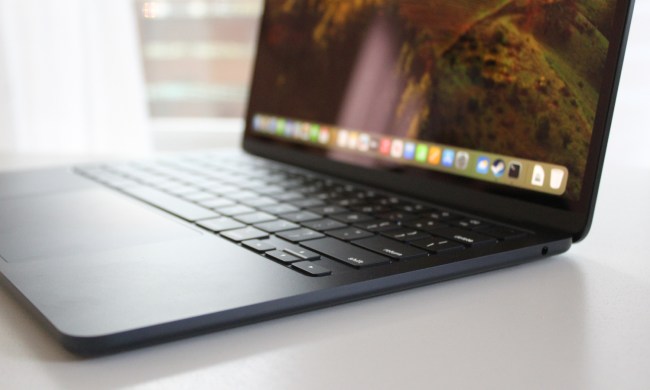Apple’s new M4 MacBook Pro is great. It earned a rare Editors’ Choice badge in our M4 MacBook Pro review, and it’s cemented itself as one of the best laptops you can buy. Even with so much going for it, Apple hid one of the most exciting developments it made with its new range of laptops — the use of quantum dot technology.
Like the last few generations of MacBook Pro displays, the M4 range is using a mini-LED backlight. There’s no tandem OLED like we saw on the iPad Pro earlier this year. However, according to Ross Young, CEO of Display Supply Chain Consultants (DSCC), Apple added a layer of quantum dots to the M4 MacBook Pro. This, according to the display expert, offers better color gamut and motion performance compared to the solution Apple previously used.
Big Apple display news, they have adopted quantum dots for the first time. The latest MacBook Pro's (M4) use a quantum dot (QD) film rather than a red KSF phosphor film.
In the past, Apple went with the KSF solution due to better efficiency and lack of cadmium (Cd), but the… pic.twitter.com/5olq9lEHs9
— Ross Young (@DSCCRoss) November 14, 2024
We have a deep dive on how quantum dot tech works, but in short, they’re a layer of phosphorescent crystals that sit between the backlight and the color filter of a display. This layer allows pure white light to hit the color filter — LED backlights don’t produce perfect white — by mixing blue, green, and red primaries that quantum dots produce when exposed to light. This not only gives you more accurate and vibrant colors, but it also improves brightness, as the color filter doesn’t need to correct the errors of the backlight.
Young says Apple previously used a “KSF solution,” referring to KSF phosphor powder, which is used in wide-gamut displays like the MacBook Pro to help produce the wider gamut — see the sharp red spike in the post above. With quantum dots, the MacBook Pro is able to provide much more consistent color coverage.
There are a lot of holdouts for an OLED MacBook Pro, and that was a point of contention we mentioned in our review. However, the inclusion of quantum dots significantly improves the color quality of the M4 MacBook Pro, even if it’s unable to match the heights of a true OLED display. In addition, Apple isn’t charging a premium for the new inclusion — you’ll find the quantum dots regardless of if you spend the extra $150 for the nano-texture display option.




